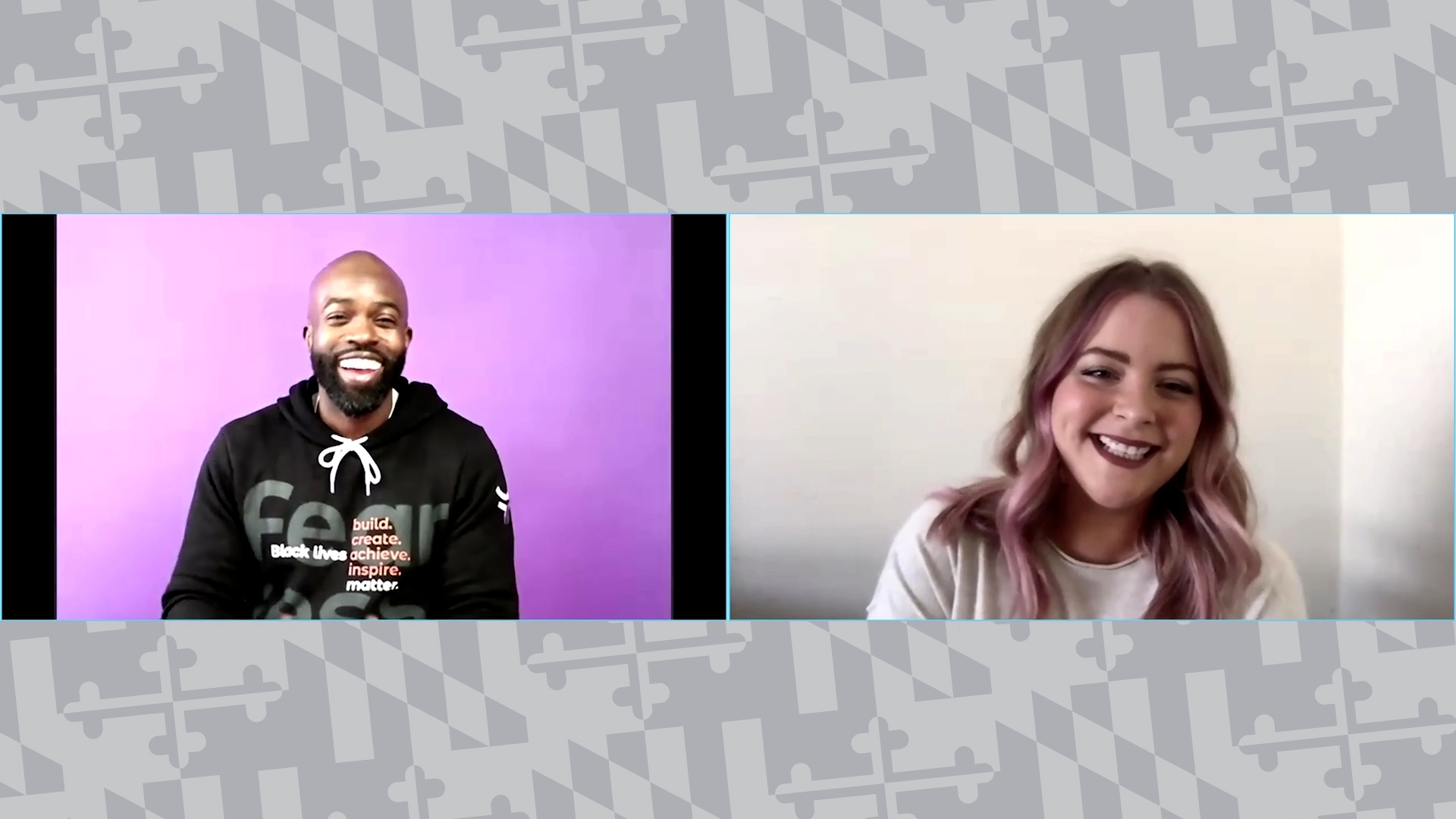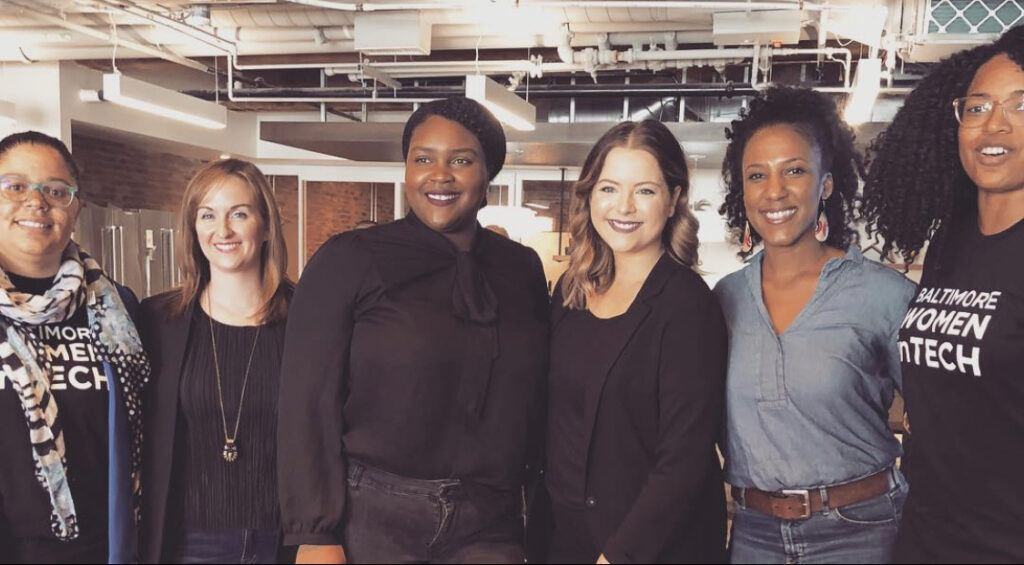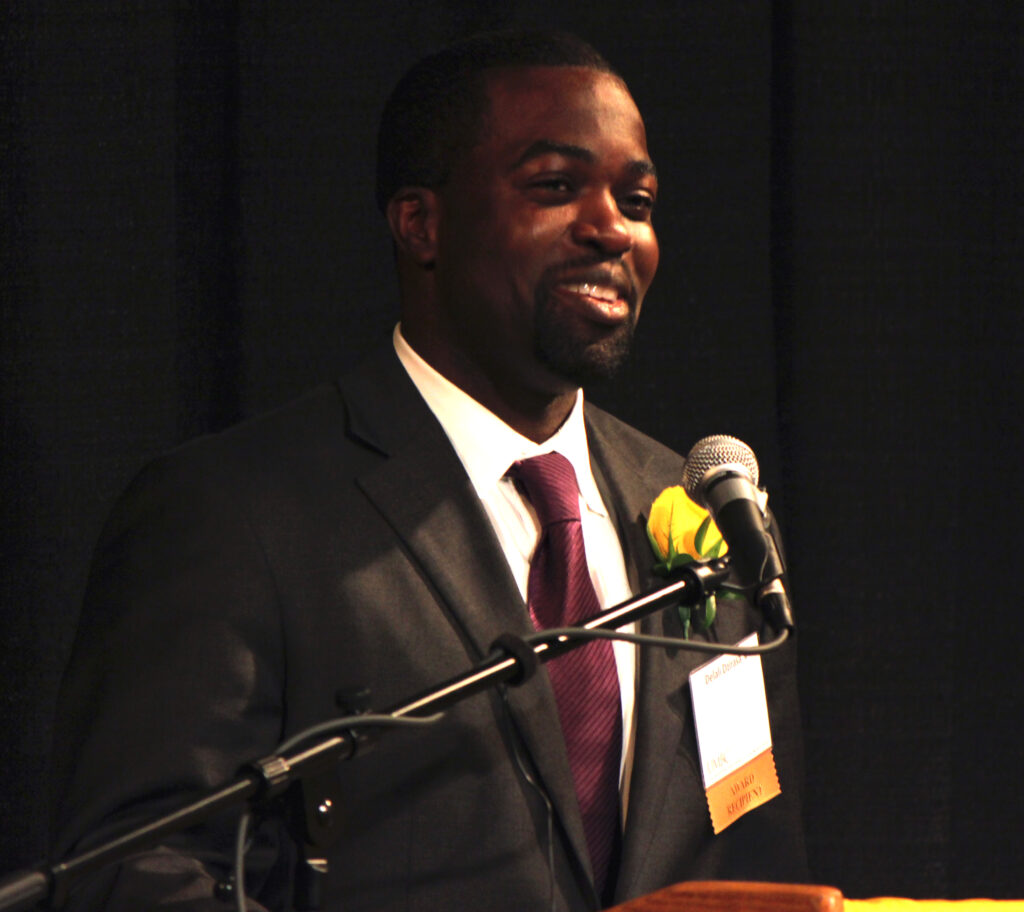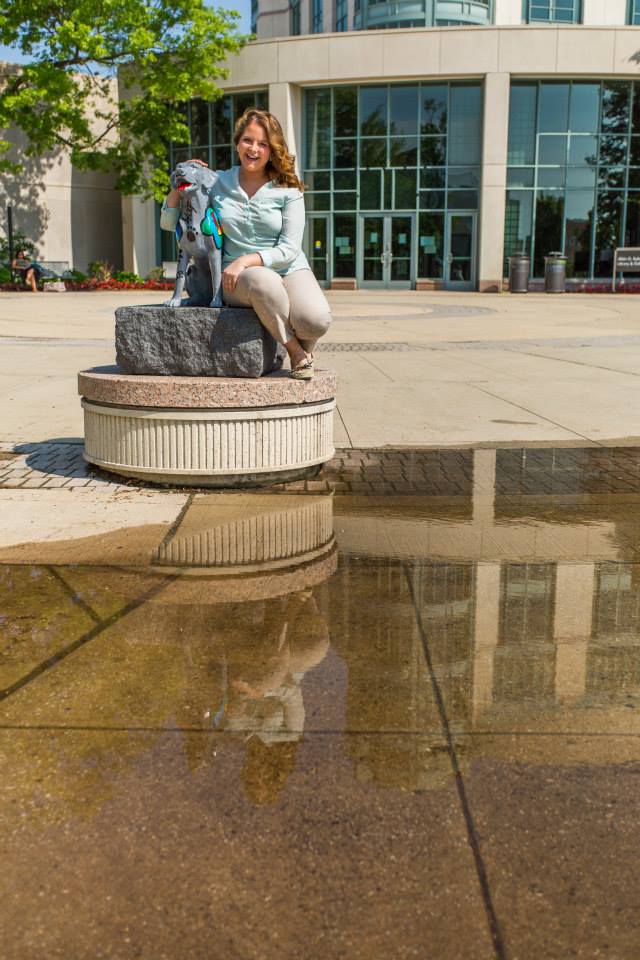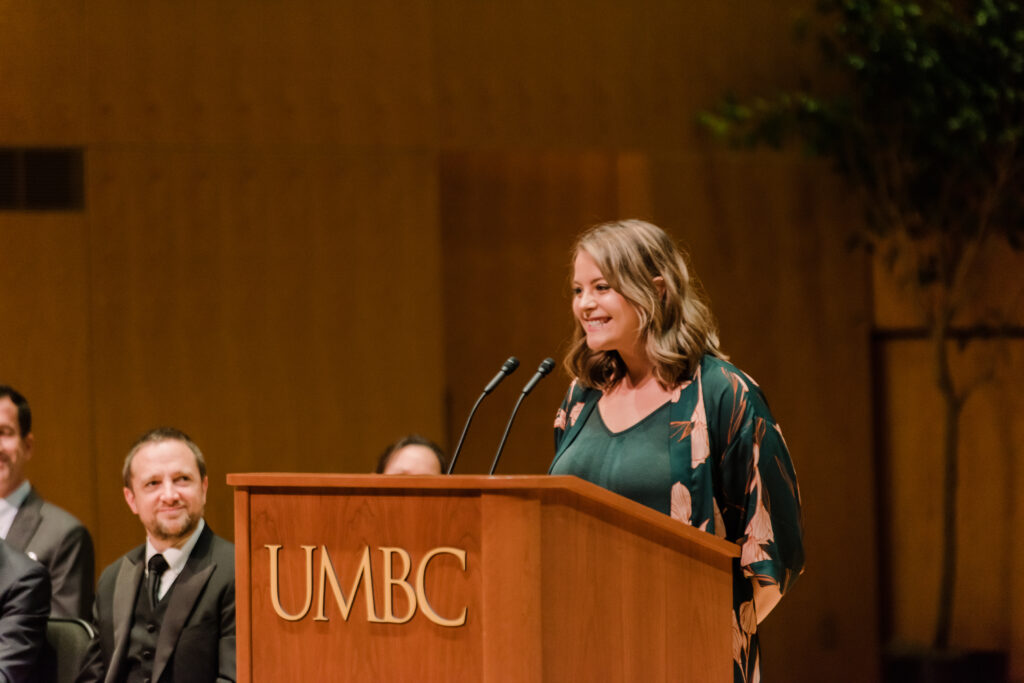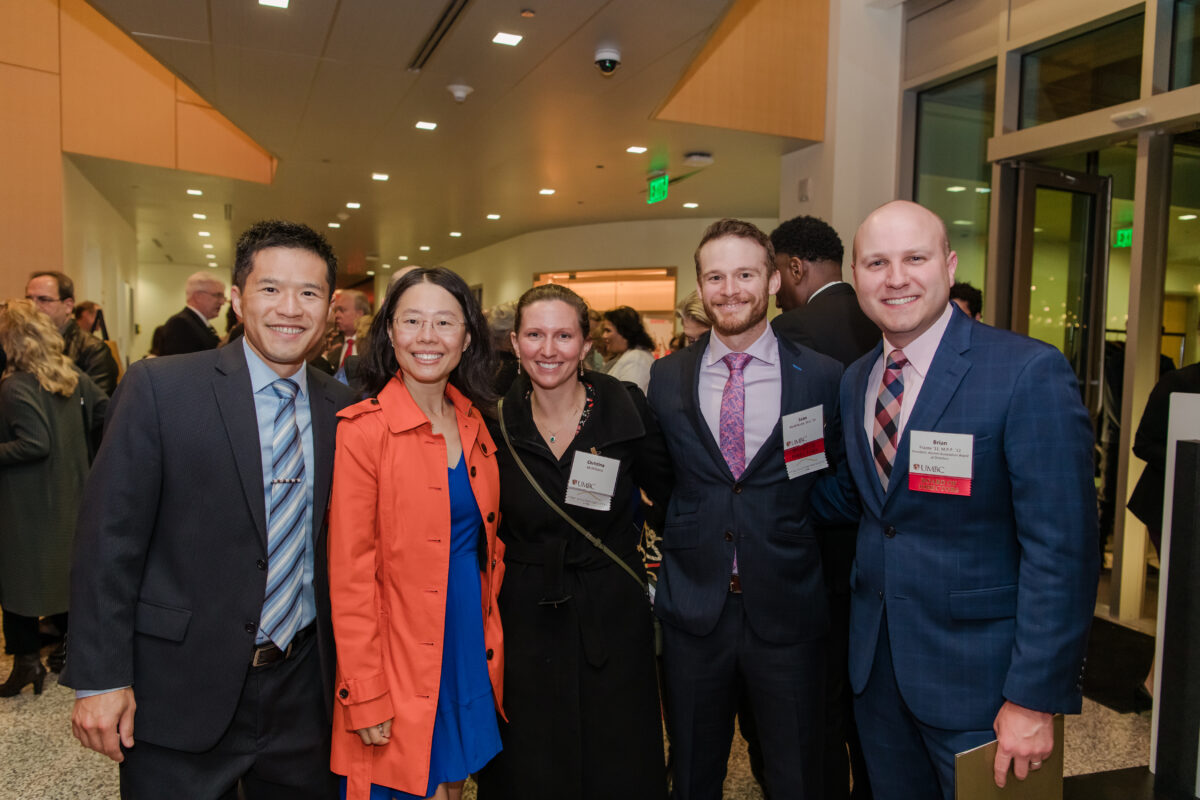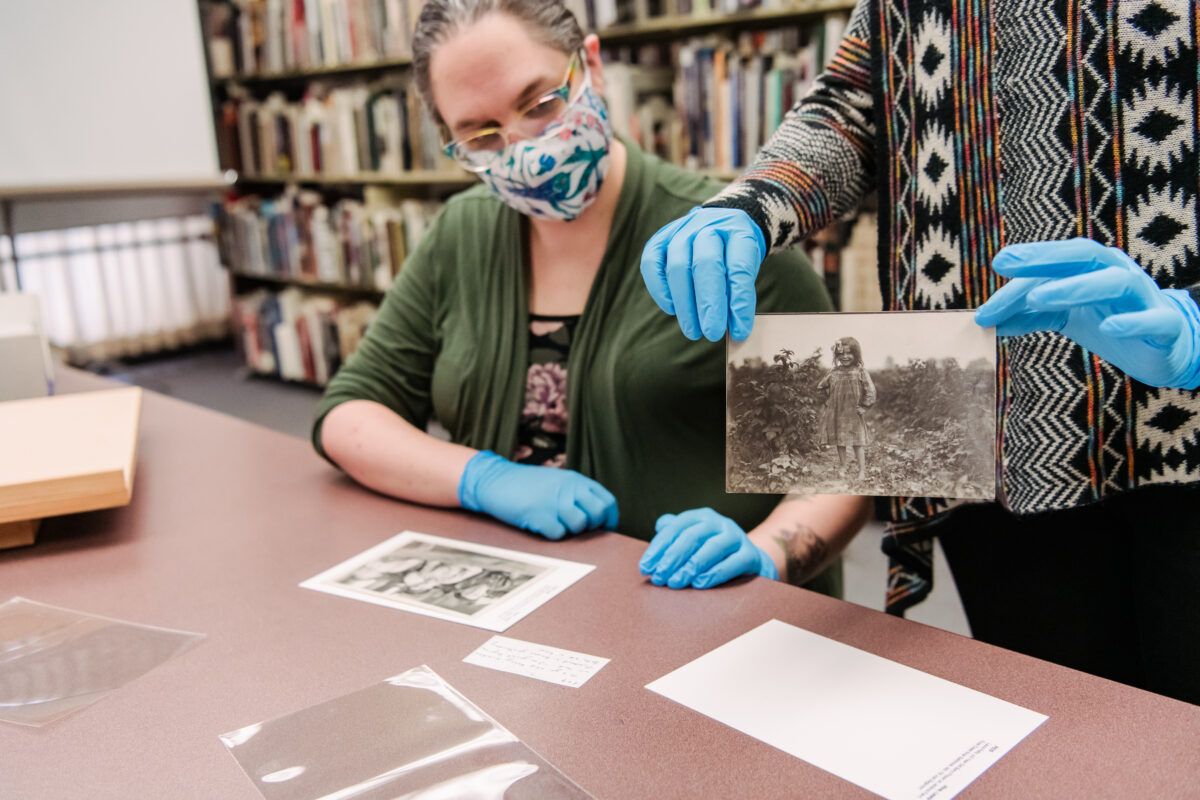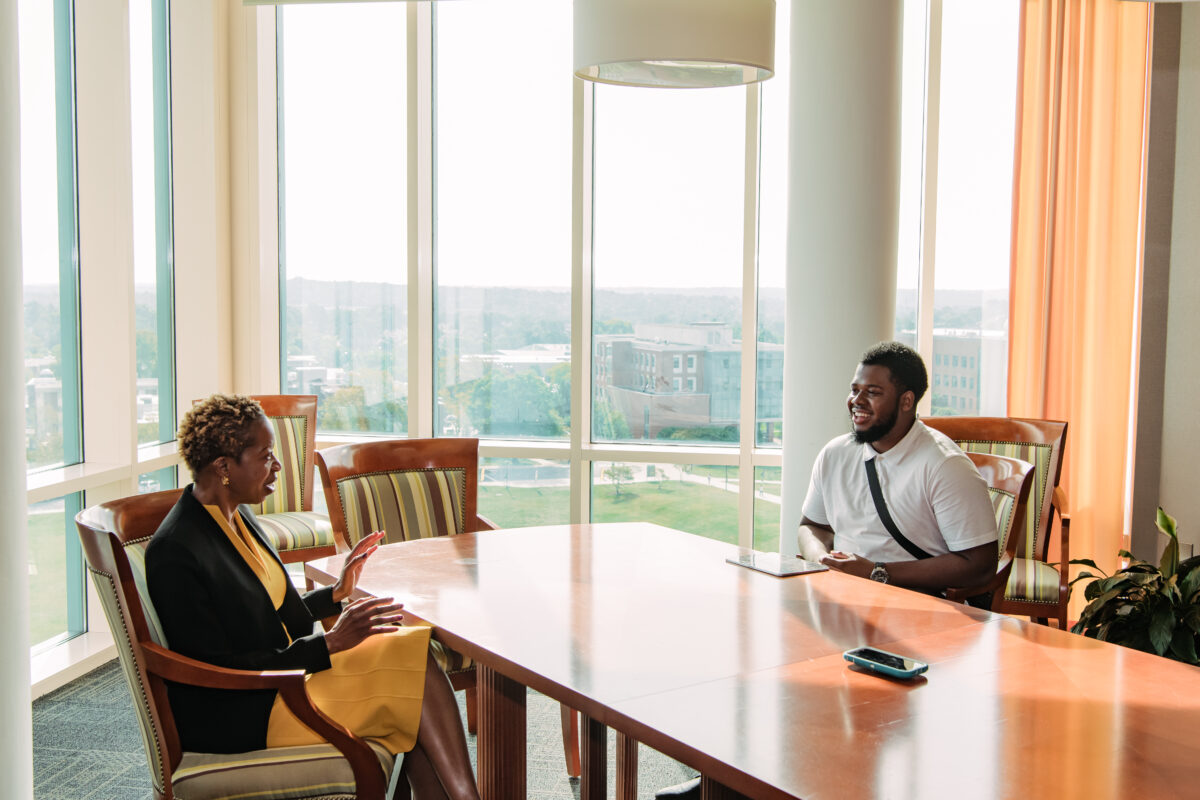Since 2009, as part of its Alumni Awards celebration, the UMBC Alumni Association names one “Rising Star” recipient each year who exemplifies early career and professional achievement. In the coming weeks, we will spend some time with awardees from the past decade to see where they are now—and how they’ve grown in their fields while maintaining ties to UMBC. In this installment, UMBC Rising Stars and Fearless coworkers Delali Dzirasa and Kelsey Krach discuss their Retriever networks and the responsibility of working in the civic tech space.
When Delali Dzirasa ’04, computer engineering, founded Fearless 12 years ago, he ran it out of his mother’s basement. A year later, when Dzirasa joined forces with John Foster ’04, computer engineering, their first proper office was a shared cubicle at bwtech, UMBC’s business and technology research park. Their vision for the software company was to provide digital services, but specifically tools that empower communities and create good change. “Software with a soul,” Dzirasa, CEO, says.
And their methods caught the attention of the Retriever community. In 2011, Dzirasa won the Rising Star award from the UMBC Alumni Association, and in 2019 Fearless project manager and designer Kelsey Krach ’14, anthropology, won the same award for her contributions to human centered design. Krach, now based in California, joined Dzirasa virtually to discuss the fulfillment of working on technology in co-creation with the community who will use it, and how the Fearless culture is changed and strengthened with each added team member. Reflecting on the years since their respective awards, Dzirasa and Krach see their professional and personal growth as possible only through the support they received from their UMBC communities.
Here’s a little secret they both share—as members of Retriever-filled families, neither Dzirasa nor Krach initially saw themselves going to UMBC, but the campus won them over as high schoolers and the pair can’t help but hype their alma mater.
So much more than software
Delali Dzirasa: Some folks might ask, “Well, what in the world does a software company have to do with community partnerships and service?”
Kelsey Krach: Fearless is so much more than a digital services firm. Honestly, it’s one of the reasons I was drawn to come work there, because we do so much in the Baltimore community, like partnering with the Downtown [Partnership’s] BOOST Program and some other community organizations.
Dzirasa: Fearless is actually based in Baltimore because of the Downtown Partnership, so they’re very much a part of our story. Black-Owned and Occupied Storefront Tenancy (BOOST) is a program of the Downtown Partnership where they’re looking to increase Black-owned founders and entrepreneurs. I think it just really speaks to entrepreneurs that might have the passion, might have the energy, but need a little bit of support to get going.
Krach: What type of help did you receive in your early stages? I feel like that’s one of the reasons why you spend time doing this work.
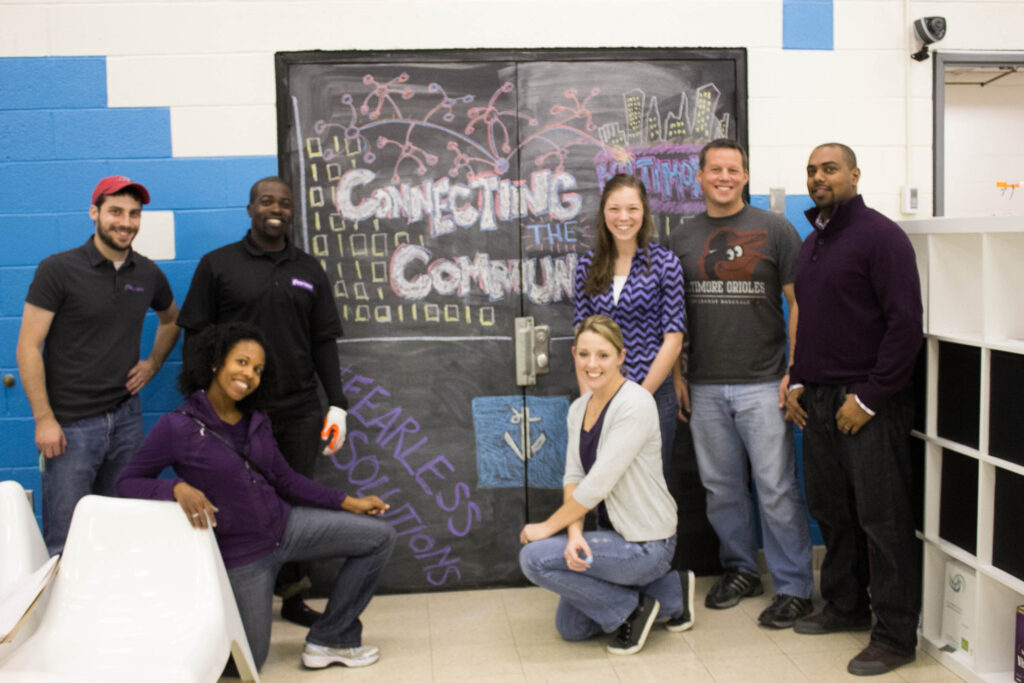
Dzirasa: Fearless started off at UMBC, and so UMBC is always going to be part of our story. My brothers and I had a bunch of little side hustles and businesses growing up but never really knew the formal side of entrepreneurship, and UMBC started a fantastic entrepreneurship program while I was there, so I attended those courses.
When Fearless was born, our first cube—not even an office, but our first cubicle—was at UMBC in the bwtech Incubator on campus. So UMBC has been there, whether we needed advice, whether we needed partners, whether we needed someone to be able to get direction from.
I don’t know that I feared it not working, right? I think entrepreneurs have to have a healthy dose of delusion. I think if there was a fear it was—will we be like everybody else? Or would we have the courage to stand out and try to do things a little bit differently?
A Fearless culture
Krach: I’ve been at Fearless for three years, and I’ve seen a lot of growth happening, especially over the past couple of years. I think what’d be really interesting to talk about are maybe two things, how do we keep this community camaraderie as we continue to grow and how do we make sure that as people come into the company we are maintaining excitement around the community work that we do?
Dzirasa: I don’t think that we will keep the culture, and I don’t think that’s a bad thing. Every time we add a new person into Fearless, the culture is different. That’s because new people bring new ideas and new interests and new energy, and they create something that wasn’t here before that we all get to benefit from. What I think will remain consistent are the values, our internal culture code, like “create belonging, take initiative, open dialogue, make impact.”
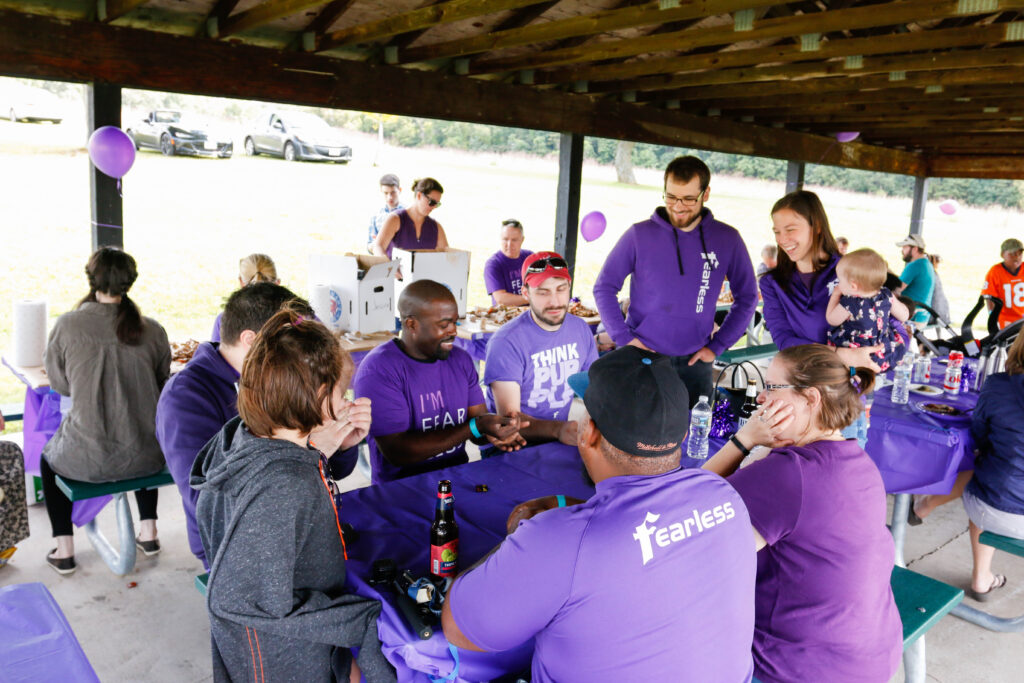
Krach: I think that’s a great way to explain it, and I think when we talk about the community aspect of Fearless, what I really love, too, is that we have things built into our work, like our community hours, a certain number of hours a year we get compensated for doing some of this community-based work. I remember even before we had those community hours, a group of people at Fearless went out to serve breakfast at a local food shelter in Baltimore. I thought, “Wow, these are amazing people who want to wake up with me at 5 o’clock in the morning.”
Dzirasa: A question I ask myself often is have we done a good job as a company giving space for people to do community work, or have we just done a good job of attracting people that already care about humanity and the world and just get out of their way? I think it’s a little bit of both but probably more the latter.
Kelsey, in your case and all you’ve done, whether it be serving food or supporting mental health institutions and initiatives or Code for Baltimore—we didn’t create or enable that. That’s you. You were going to do those things anyway. So I think we’ve been able to do a good job of getting a collection of great humans and just kind of getting out of the way and helping them to amplify their message and what it is that they’re doing.
Krach: I think this topic leads into our role in the civic tech space. People are like, “Well, let’s just build this piece of technology and that will fix problems.” But we know you need to have communal co-creation from the people it’s going to affect. We can’t just assume that they’ll want to use the thing that’s created.
Dzirasa: That’s right. What civic tech is—is you’ve got civic and you’ve got tech and they come together and they co-create and they solve problems together. I think that’s something that allows us to both bring an air of authenticity in what we’re doing, but it also ensures that there is accountability for everyone to solve the problem together.
Keeping Retriever ties
Krach: UMBC has had such a fundamental effect on me and…I’m at a loss for words, actually, to talk about what UMBC has done for me. I couldn’t even imagine having another type of university experience.
Dzirasa: UMBC means a lot. I mean, not just from personal and professional, but it’s a bit of a family thing. I met my wife at UMBC. Both my brothers went to UMBC, so our whole family went there. Then there are the personal relationships I made on campus, Dr. Freeman Hrabowski, Greg Simmons, Kim Leisey, and so many people that are at UMBC who were instrumental in my journey, like Vivian Armor, who directs the Alex. Brown Center for Entrepreneurship. Any time there’s an opportunity to participate or give a talk or support students, I jump at the opportunity.
Krach: I laughed when you said your whole family went to UMBC. My mom and dad went to UMBC. My younger sister went to UMBC at the same time I was there. My aunt went to UMBC and works there, so I definitely get that family feeling. In fact, I did not want to go to UMBC because of that.
Dzirasa: We share that.
Krach: I was a very rebellious younger person, and I was just like, “No, I’m not going to go to UMBC.” I wanted to go as far away as possible. Then my mom was just like, “Just please visit and then you can say definitively.” I shadowed a friend of mine from high school who was going to UMBC, and I totally fell in love.
Dzirasa: We’re like the same person. Same thing, I resisted it. It was the last place on earth I wanted to go to. But then I absolutely loved it, and I couldn’t have imagined a different world for myself.
Krach: My liberal arts education set me up to be a critical thinker going into the tech space. My job is to think about the big picture. How is what we’re doing with our piece of technology actually solving the problem for whomever we’re trying to help?
I’ve been able to go back to the Sondheim Scholars Program and teach them about human-centered design and how that can be applied in policy and how technology is related to the policies that we implement. It’s all so connected in my brain. It’s funny because I’m like, “How do people not see all of these things are connected?”
How have you grown since receiving the Rising Star award?
Dzirasa: All right, let me set the stage. I received the award about 10 years ago. My guess is that every single person in our company could fit in the first row or two in the Library Gallery, where they held the ceremony. That’s certainly not the case now!
A less visible area I’ve seen growth is in something I’m not inherently good at, so it’s something that I’m continuing to work at, which is how to build systems. But at Fearless, we’ve been able to bring along amazing people that are really smart—a heck of a lot smarter than I am in their respective areas—who contribute so much to the organization. So it’s really finding what am I uniquely gifted at, leaning into that lane, but really trusting other people to do what it is that they do so well.
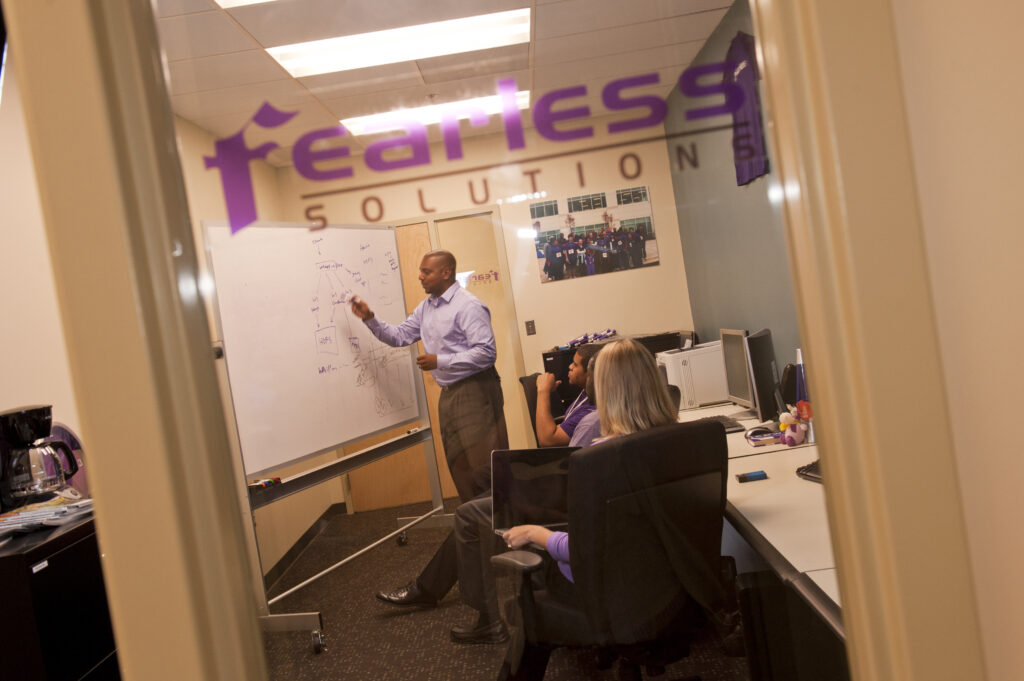
Kelsey, you received your Rising Star award more recently in 2019. Can you talk about what has changed in your own life personally and professionally?
Krach: I had a big shift personally with moving from Baltimore to California right before I got that award—our ceremony was in the Linehan Concert Hall. I’ve been so lucky to continue working with Fearless in a remote capacity, so a big piece for me has been growth around building a new life here. One of the most beautiful parts of this move is that Oakland reminds me a lot of Baltimore in the sense of the people and community.
Professionally, I’ve been able to dig in more to being a product manager and thinking more about what is the value we’re providing. What problems are we focusing on with our technology, and how are we helping the government make smart decisions about what they want to implement. I want to make sure that we’re not just putting Band-aids on stuff but instead we’re ripping off the Band-aids and getting to these deep wounds that exist.
Delali, one last question—what was something you learned at UMBC that you still use in your daily life?
Dzirasa: I feel like UMBC taught me how to build community, how to help put some of the pieces in place that build culture. What about you?
Krach: For me, it’s like what have I not used? But, really, one person who stands out for me is Vivian Armor, who you mentioned earlier, and the entrepreneurship classes that I took while at UMBC. That combined with my cultural anthropology background took me to this level of thinking about structure and agency and what it means to build the technology in order to help individuals accomplish their goals. And to ask ourselves, is our tech creating a foundation for equitable spaces?
Dzirasa: For me, it goes back to what we talked about: how do we empower people like you who already care about humanity and are awesome humans and let them just do amazing things? Even through the lens of equity, if you’re a woman founder or a founder of color or whatever it is who has a particular experience that traditionally isn’t in the marketplace, if we help those companies to be really successful, they then have a lived experience of how to do that. They become a story…an example that people can point to and say, “Oh, I can do that, too.”
Do you know a UMBC alum who should be recognized for the great work they’re doing? Nominate them for an Alumni Award by filling out this form by May, 3, 2021.
Tags: Alumni Awards, anthropology, computer engineering, Rising Star

